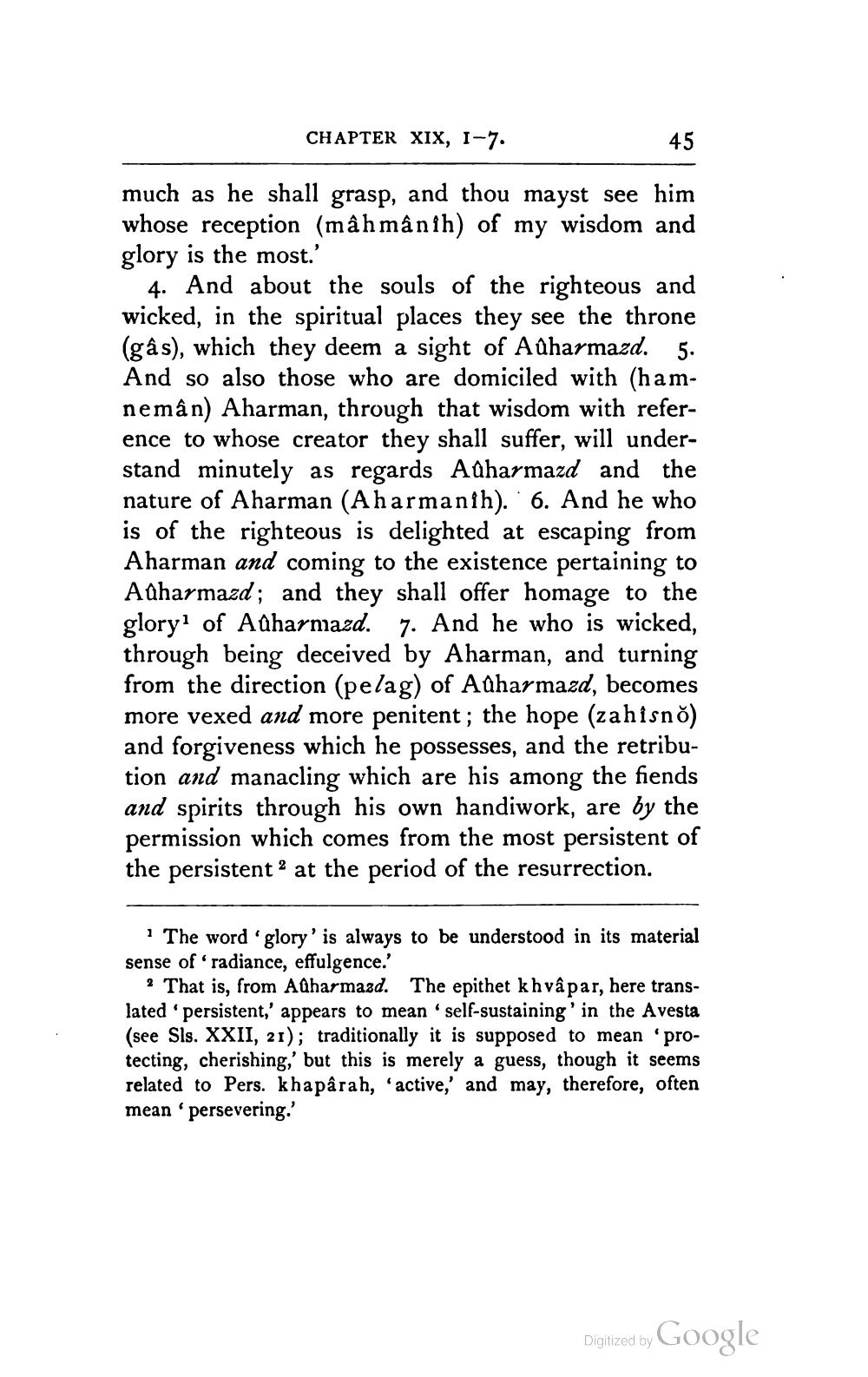________________
CHAPTER XIX, 1-7.
45
much as he shall grasp, and thou mayst see him whose reception (mâhmânih) of my wisdom and glory is the most.'
4. And about the souls of the righteous and wicked, in the spiritual places they see the throne (gâs), which they deem a sight of Allharmazd. 5. And so also those who are domiciled with (hamnemân) Aharman, through that wisdom with reference to whose creator they shall suffer, will understand minutely as regards Adharmazd and the nature of Aharman (Aharmanih). 6. And he who is of the righteous is delighted at escaping from Aharman and coming to the existence pertaining to Adharmazd; and they shall offer homage to the glory of Adharmazd. 7. And he who is wicked, through being deceived by Aharman, and turning from the direction (pelag) of Adharmazd, becomes more vexed and more penitent; the hope (zahisno) and forgiveness which he possesses, and the retribution and manacling which are his among the fiends and spirits through his own handiwork, are by the permission which comes from the most persistent of the persistent 2 at the period of the resurrection.
The word 'glory' is always to be understood in its material sense of radiance, effulgence.'
? That is, from Adharmazd. The epithet k hvâpar, here translated 'persistent,' appears to mean self-sustaining' in the Avesta (see Sls. XXII, 21); traditionally it is supposed to mean protecting, cherishing,' but this is merely a guess, though it seems related to Pers. khapârah, 'active,' and may, therefore, often mean 'persevering.'
Digitized by Google




